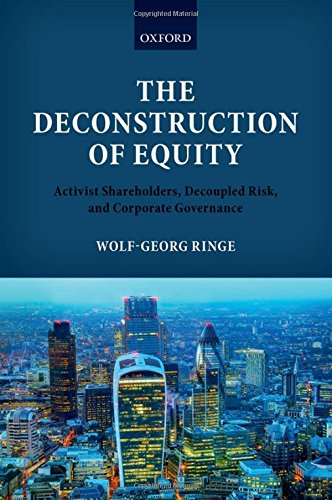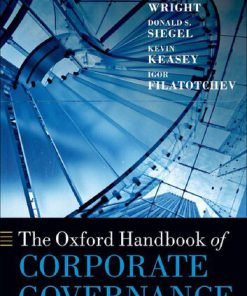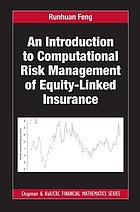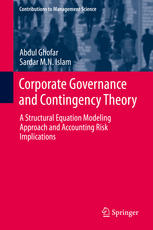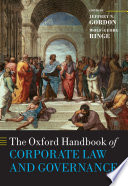The Deconstruction of Equity Activist Shareholders Decoupled Risk and Corporate Governance 1st Edition by Wolf Georg Ringe ISBN 0191034533 9780191034534
$50.00 Original price was: $50.00.$25.00Current price is: $25.00.
The Deconstruction of Equity Activist Shareholders Decoupled Risk and Corporate Governance 1st Edition by Wolf Georg Ringe – Ebook PDF Instant Download/Delivery: 0191034533, 9780191034534
Full download The Deconstruction of Equity Activist Shareholders Decoupled Risk and Corporate Governance 1st Edition after payment
Product details:
ISBN 10: 0191034533
ISBN 13: 9780191034534
Author: Wolf Georg Ringe
New investment techniques and new types of shareholder activists are shaking up the traditional ways of equity investment that informs much of our present-day corporate law and governance. Savvy investors such as hedge funds are using financial derivatives, securities lending transactions, and related concepts to decouple the financial risk from shares. This leads to a distortion of incentives and has potentially severe consequences for the functioning of corporate governance and of capital markets overall. Taking stock of the different decoupling strategies that have become known over the past several years, this book then provides an evaluation of each from a legal and an economic perspective. Based on several analytical frameworks, the author identifies the elements of equity deconstruction and demonstrates the consequences for shareholders, outside investors, and capital markets. On this basis, the book makes the case for regulatory intervention, based on three different pillars and comprising disclosure, voting right suspension, and ex-post litigation. The book concludes by developing a concrete, comprehensive proposal on how to address the regulatory problem. Overall, this book contributes to the debate about activist investment and the role of shareholders in corporate governance. At the same time it raises a number of important considerations about the role of equity investment more generally.
The Deconstruction of Equity Activist Shareholders Decoupled Risk and Corporate Governance 1st Table of contents:
I. Introduction
A. Context
B. Structure
II. Shareholders in Corporate Governance
A. Costs of Voting and Apathy
B. Blockholders
C. Activist Shareholders and Hedge Funds
D. The Financial Crisis and Recent Developments
E. Shareholders and Risk-decoupling
F. Conclusion
III. Risk-Decoupling Strategies
A. Negative versus Positive Risk-decoupling
B. Negative Risk-decoupling: More Influence than Risk
1. Category 1: Financial derivatives
2. Category 2: Share lending
3. Category 3: Record-date capture
C. Positive Risk-decoupling: More Risk than Influence
1. Contracts for Difference
2. CfD investments and their abuse
3. Case studies
4. Conclusion
D. Empirical Evidence
E. Related Situations Not Covered in This Book
1. Related risk-decoupling strategies
2. ‘One share, one vote’
3. Proxy advisors
4. Limited liability
F. Summary
IV. The Failure of Traditional Categories of Law
A. Corporate and Securities Law
B. Hedge Fund Regulation
V. Problem Perspectives
A. Outline and Relevance of the Problem
B. Principal-agent Perspective
1. Risk-decoupling and agency costs
2. Possible reduction of agency costs?
3. Objection
4. Implications
C. Information Costs
1. Information and transaction cost theory
2. Risk-decoupling and information costs
3. Summary and implications
D. Corporate Finance
1. Debt versus equity
2. Risk-decoupling between debt and equity
3. Shareholders as residual risk-bearers
4. Implications
E. The Market for Corporate Control
1. Harmful market impacts of CfD dealings
2. What is wrong with a general CfD disclosure obligation?
3. CfDs and the market for corporate control
VI. Solutions
A. Doing Nothing
1. Persisting decoupling of voting rights
2. Self-regulation
3. Self-regulation of the hedge fund industry
4. Self-help in securities lending cases
5. Risk-decoupling in existing legal frameworks
6. Conclusion
B. Ban and Restriction
1. Ban on decoupling
2. Difficulties with the record-date problem
3. Conclusion
C. Transparency
1. Transparency as a response to decoupling problems
2. Legislative activity and reactions
3. Costs and critique
4. Key issues of a transparency regime
5. Co-ordination with transparency of short selling
6. A concrete proposal: An integrated disclosure system
7. Summary
D. Disenfranchisement
1. A general prohibition to vote?
2. Case-by-case regulator’s decision
3. Limitations of the approach
4. Summary
E. Fiduciary Duties
1. Fiduciary duties as an established legal instrument
2. Individual disadvantages
3. Conclusion
F. Results, Overview, and Assessment
G. Positive Risk-Decoupling—An Alternative Regulatory Model Targeting CfD Abuse
1. Proposed regulatory structure
2. Reply to criticism
3. Efficiency of enforcement
4. Conclusion
VII. The Federal Dimension
A. Admissibility
B. Substantive Desirability
C. Practicability
D. Summary
VIII. Conclusion
Bibliography
Index
People also search for The Deconstruction of Equity Activist Shareholders Decoupled Risk and Corporate Governance 1st:
the deconstruction of equity
the deconstruction
the doctrine of equitable conversion
the definition of deconstruction
the deconstruction movement
Tags:
Wolf Georg Ringe,Deconstruction,Equity Activist,Shareholders,Decoupled,Risk,Corporate Governance
You may also like…
Business & Economics
Business & Economics - Personal Finance
Business & Economics - Responsibility and Business Ethics
Business & Economics - Management & Leadership
Corporate Governance and Organisational Performance: The Impact of Board Structure Naeem Tabassum
Science (General)
Cookbooks
Business & Economics
Politics & Philosophy - Government & Politics
The Oxford Handbook of Corporate Law and Governance Oxford Handbooks Gordon
Politics & Philosophy - Government & Politics


